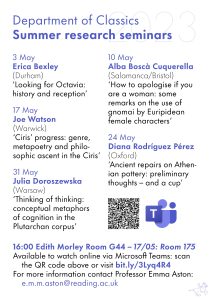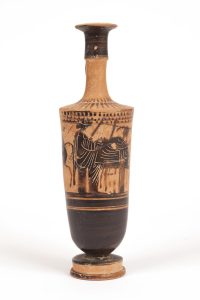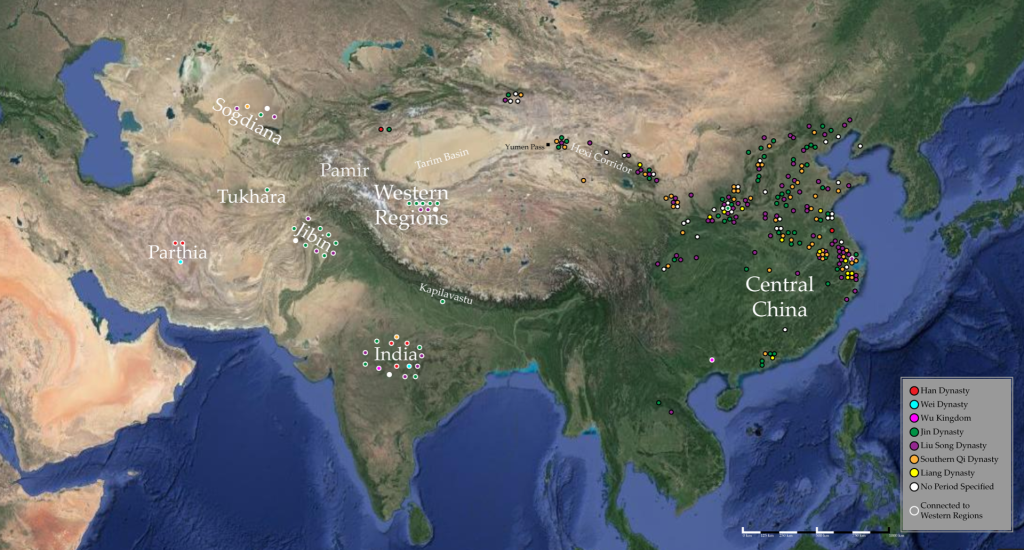 We are delighted to announce a new exhibition— Locus Ludi: Anyone can play!—on display at the Ure Museum from 6 September until 30 November, 2023.
We are delighted to announce a new exhibition— Locus Ludi: Anyone can play!—on display at the Ure Museum from 6 September until 30 November, 2023. 
This new exhibition, inspired by the European Research Council funded project Locus Ludi: The Cultural Fabric of Play and Games in Classical Antiquity, led by Professor Véronique Dasen, is an opportunity to explore the rich collections relating to games and play in antiquity that are available not only at the Ure Museum but at other UK museums. The exhibition is co-curated by Jayne Holly (Ure Assistant Curator) and Summer Courts (one of our PhD candidates) and benefits particularly from Summer’s expertise in ancient games. We are most grateful to Colchester and Ipswich Museums, Reading Museum, The British Museum and the University of Reading’s Special Collections for the loan of important artefacts from their collections. 
Another highlight is the game pieces and other contents of the Stanway Doctor’s Grave, a first-century AD tomb discovered by archaeologists in Stanway, Essex, in 1996. (NB you may have heard that ‘Doctor’ referred also as ‘The Druid of Colchester’, for indeed it is unclear whether he was Celtic, Roman, or other, Druid or even doctor. Nontheless he was buried with a unique gameboard that still baffles experts.  You can learn more about it with this video made by the Panoply Vase Animation Project (created with support from the University of Reading’s Friends and Arts Committee) and of course by visiting the exhibition in the Ure Museum!
You can learn more about it with this video made by the Panoply Vase Animation Project (created with support from the University of Reading’s Friends and Arts Committee) and of course by visiting the exhibition in the Ure Museum!
We have planned several exciting activities and outreach events to coincide with this exhibition. All are welcome but please note that bookings are required for the first two events:
- 16 September, 10am–4pm: Unwrap ancient games for Heritage Open Days
- 30 September, 12–2pm: Summer Olympots to celebrate National Sporting Heritage Day
- 16 October, 5pm: Play or cheat? Games in Greek and Roman antiquity. The James E. Gordon Lecture, from Prof. Véronique Dasen (Fribourg) (download the poster here).
- 22 November, 6 pm: More than just fun and games: Why study board games in Roman society? A lecture from Dr Timothy Penn (Oxford) with an opportunity to view the exhibition (download the poster here).














